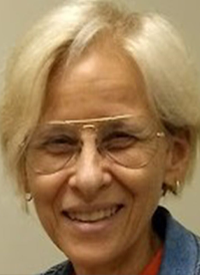Opinion: Exploring Available Narrative Medicine Courses as an Oncology RN and Social Worker
Narrative medicine is relevant to health care professions and can be used to enhance patient as well as the clinician’s experiences.
Debi Fischer, MSW, BSN, BA, LCSW, RN

I have been growing more and more interested in the concept of narrative medicine.
I recently became familiar with “A Piece of My Mind,” which is published in JAMA.1 These are essays where clinicians offer their reflections on a myriad of topics regarding their patients and health care in general. In one essay that I read, an emergency department physician, Jonathan Zygowiec, DO, wrote about his experience with stage IV colorectal cancer. The essay, called Virtually Grounded, looked at the technology used in virtual reality (VR). According to Zygowiec, VR “might play [a role] in end-of-life care in the future to help patients virtually travel the world and connect with others.”
Another essay JAMA has recently published, called Grief As a Superpower, was written by a medical student whose first code blue helped her to come to terms her father’s death.2
As someone who has worked in oncology for many years, I have become interested in different resources available for those who want to improve their ability to tell stories about their experiences in health care. I am very interested in how diving into narrative medicine can help me unpack my own experiences in medicine. My only question at this point is to find more of these programs in my area, as well as nationwide.
Columbia University Programs
This overview of narrative medicine resources begins with the program originator, Columbia University. They offer a master’s program in narrative medicine as well as an online certificate program. The MS program began in 2009. In my opinion, the first sentence of the program’s online description should resonate with oncology RNs and clinical social workers: “The care of the sick unfolds in stories.”3 This is true and is evidenced in oncology on a daily basis. Often, measures trying to extend life in 2023 involves a trio of surgery, chemotherapy, and radiation. Dealing with end-of-life care is not a skill that is learned overnight.
Narrative medicine looks at patient stories and provides an interactive component. According to Columbia, narrative medicine “addresses the needs of patients and caregivers to voice their experience, to be heard and to be valued, and it acknowledges the power of narrative to change the way care is given and received.”3 Those who complete this program can continue their clinical practice as a physician, nurse, or social worker, and incorporate knowledge from this field.
The online certificate is a noncredit option, and the courses can be awarded 6 academic credits if the student wants to pursue the master’s degree option. The certificate option is calledCertification of Professional Achievement in Narrative Medicine.
Other Programs
Digging a little deeper, I found that Temple University also offers a narrative medicine course. Their program, which was founded in 2016, is embedded within the school’s MD program curriculum. It also offers activities, workshops and events which are open to all the student, faculty, and staff in their health system. Moreover, as of 2021, the school also offers a graduate certificate program in narrative medicine.4
As part of the embedded MD program, first-year medical students are invited to reflect on anatomy, as second-year students they are asked to reflect on the experience of wearing a white coat, and by their third year, they are given the opportunity to explore the impact that their clinical rotations have had on them—such as witnessing death for the first time or seeing first-hand the stark health-related disparities within the community that Temple treats.4
The University also hosts a podcast called Narratives of North Broad Podcast - Stories from Temple Health. The mission of the podcast is to coalesce the listening audience by creating a space of healing and growth.5
The University of Southern California, Los Angeles also has a master’s program in narrative medicine.Similar to the other programs that I have found, there is an emphasis on the patient story. In a description of their program on their website, they write “narrative medicine is founded on the idea that stories matter in the clinical encounter.”6
I also identified a certificate program that is 100% online. This program is offered by Baypath University. I believe this course might appeal to the RN and clinical social worker working in oncology because there is an internship component between the student writer and a clinician.As the university describes,“The internship will place writers in health care and other settings to lead creative writing groups to foster the use of writing as a tool in the medical journey and/or the trauma experience.”7 This will dovetail with the oncology experience in an informed experience, allowing the writer to gain some perspective about what they have experienced and express it on paper.
References
- Zygowiec J. Virtually grounded. JAMA. 2023;329(12):977. doi:10.1001/jama.2023.1803
- Daum R. Grief as a superpower. JAMA. 2022;328(19):1905. doi:10.1001/jama.2022.20134
- Master of science in narrative medicine. Columbia University Irving Medical Center Department of Medical Humanities and Ethics Web. Accessed March 17, 2023. https://www.mhe.cuimc.columbia.edu/narrative-medicine/education-and-narrative-medicine/master-science-narrative-medicine
- Narrative medicine. Temple University. Accessed March 17, 2023. Temple University. https://medicine.temple.edu/education/narrative-medicine-program
- Narratives of North Broad podcast – stories from Temple Health. Temple University. Accessed March 17, 2023. https://medicine.temple.edu/education/narrative-medicine-program/narratives-north-broad-podcast
- Master of science in narrative medicine. University of Southern California. Accessed March 17, 2023. https://sites.usc.edu/narrativemedicine/
- Narrative medicine certificate. Baypath University. Accessed March 17, 2023. https://www.baypath.edu/academics/graduate-programs/graduate-certificates/narrative-medicine-certificate/
Latest Conference Coverage
2 Commerce Drive
Cranbury, NJ 08512
All rights reserved.


